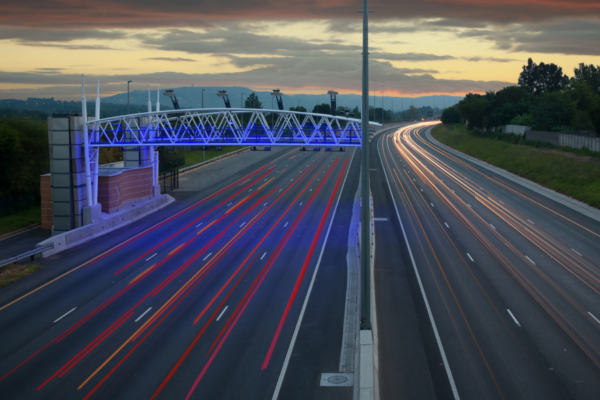By Thapelo Molefe
While the Gauteng government has made its first instalment to settle the E-Toll debt, motorists who still owe money for the tolls are expected to pay up, according to Gauteng finance and economic development MEC Lebogang Maile.
And motorists who have paid will not be reimbursed.
“When people were paying for e-tolls, it was not illegal. They were paying because they were utilising the service. People will not be paid back because it was not illegal. Their money was not collected illegally by the government,” Maile told reporters.
The controversial E-Tolling system was scrapped in April after widespread backlash. Only 10% of motorists reportedly paid their bills.
Maile announced on Monday that the Gauteng government had paid the first instalment of R3.8 billion towards settling the historical debt of R12.9 billion.
This payment marks the beginning of a five-year plan, where the province will pay the debt in five equal annual instalments. The first instalment consists of R3.2 billion towards the historical debt and R546 million for maintenance.
The E-Toll debt settlement plan was first announced by Finance Minister Enoch Godongwana in the 2022 Medium Term Budget Policy Statement.
The plan sees Gauteng contributing 30% towards settling Sanral’s debt and interest obligations, while the national government covers 70%.
Maile said the implications of the E-Toll debt required the provincial government to manage finances in a prudent manner, while carefully balancing the service delivery needs of the citizens.
“Given the maintenance of fiscal discipline, the province will prioritise the reprioritisation of budgets, identification of efficiency gains and making of trade-offs to fund the government priorities,” he said.
“Fiscal discipline requires that governments maintain fiscal positions that are consistent with macroeconomic stability and sustained economic growth.”
The MEC said that the provincial treasury was exploring alternative revenue sources, including partnerships with the private sector, donor funding and developmental financing.
“I have emphasised to Gauteng provincial treasury that any approach to the market for funding should be premised on securing funding to finance strategic infrastructure projects, which have sound economic benefits to the province, create jobs, raise revenue and potentially provide an avenue to pay back the E-Toll debt,” Maile said.
“This approach is seen as more sustainable and will prove far more beneficial to the citizens of Gauteng, with far more positive spin-offs than borrowing to pay a debt of E-Toll.”
The province has assured residents that essential services such as health and education would not be compromised during this period.
“Gauteng provincial treasury is, therefore, confident that through the measures and reforms mentioned above, the province will be able to service the E-Toll debt, simultaneously providing much needed services to the citizens of Gauteng, whilst reaping the benefits of the spinoffs of proposed economic infrastructure initiatives,” he said.
INSIDE POLITICS

